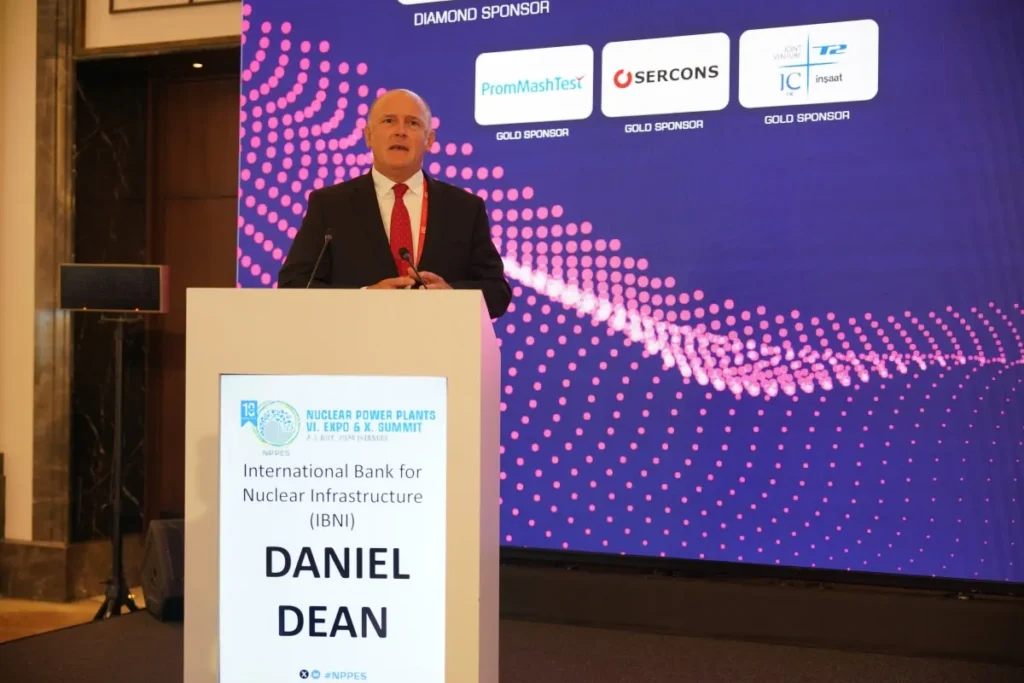
An important session on ‘Nuclear Energy Financing’ was held at the 10th Nuclear Power Plants Summit – NPPES, organised by Ankara Chamber of Industry (ASO) and Nuclear Industry Association (NSD). How to finance nuclear energy investments to achieve the zero carbon target was discussed. During the session, it was predicted that the total global investment volume in nuclear energy could exceed USD 10 trillion in the next 20 years.
The session was chaired by Tim Yeo, President of the New Nuclear Watch Institute (NNWI). Session speakers included Daniel Dean, Founder and President of the International Bank for Nuclear Infrastructure (IBNI), Vincent Zabielski, Partner in Energy and Natural Resources at Pillsbury Winthrop Shaw Pittman, and Alexander Temkin, Director of Technology and Transactions at B1 Group Consulting.
Global Investment in Nuclear Energy Could Exceed $10 Trillion
Daniel Dean, Founder and President of IBNI, said: “At least 1TW of additional nuclear capacity will be needed by 2050. Over the next 20 years, the total global investment volume in nuclear energy will be over US$5 trillion. If we do everything right, it could even reach more than US$10 trillion.”
Dean also gave information about the goals of IBNI: “IBNI’s goals for stimulating global nuclear capacity expansion are approximately 20GW by 2030, 100GW by 2035 and over 600GW of additional capacity construction or completed projects by 2040. IBNI will serve to ‘fill the gaps’ between limited government financing and where market-based financing begins. The bank will provide multi-dimensional solutions including equity, competitive grants, commercial and concessional loans, guarantees, risk management products, advisory services and access to global pools of resources.”
Innovative Financial Models Should Be Developed
Vincent Zabielski, Partner, Energy and Natural Resources at Pillsbury Winthrop Shaw Pittman, emphasised the need for innovation in financing: “It is important to develop new financial models for nuclear energy that draw inspiration from successful practices in other industries. Compared to the aviation finance market, which has developed many innovative ways to finance large fleets of aircraft, the nuclear finance market seems somewhat unimaginative. But there are also important shifts in the market: from traditional, risk-averse customers to dynamic technology companies that are increasingly demanding clean nuclear energy. Large investments and strategic initiatives by technology giants show a strong commitment to nuclear energy.”
Alexander Temkin, Director of Technology and Transactions at B1 Group Consulting, emphasised the critical importance of ensuring that nuclear power plant projects meet international standards and receive strong government support.
